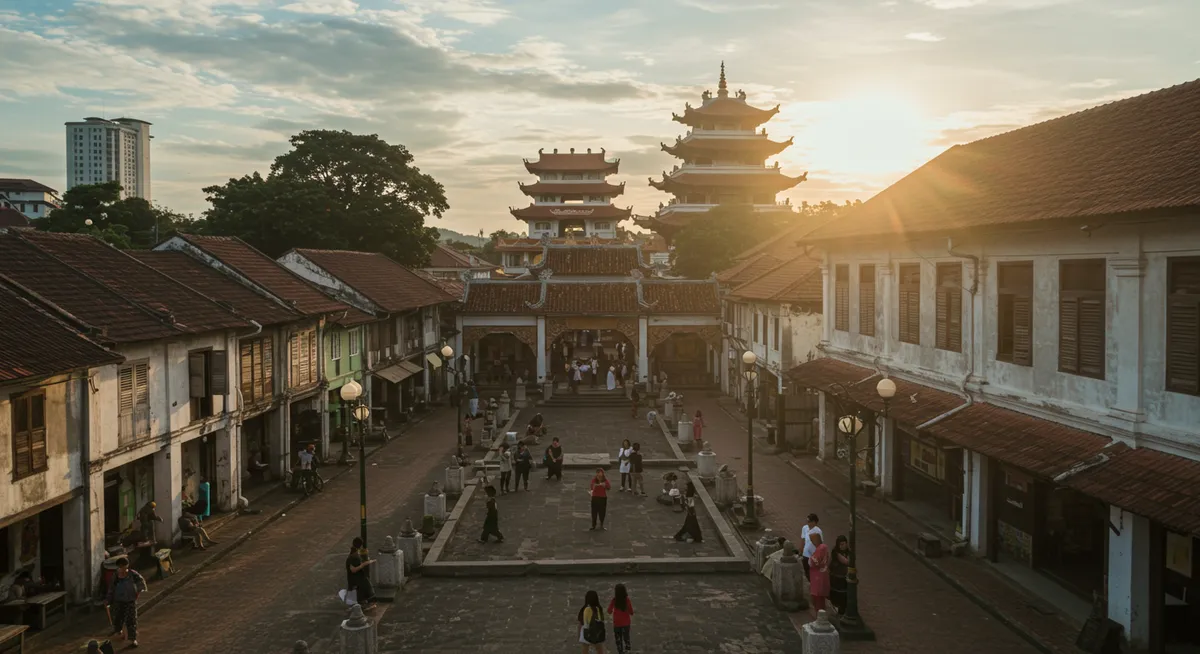
Miri Historical Sites: Uncovering Its Rich Past
Table of Contents
Want to find the best travel deals for this destination? Chat with our travel hacking specialist!
Get Travel HacksCategory: miri-historical-sites
Discovering Miri's Rich Historical Tapestry
Having spent considerable time exploring Southeast Asia, I've found Miri, Malaysia, to be a captivating city with a story to tell beyond its modern facade. Many travelers overlook its deeper roots, but a journey into Miri historical sites reveals a vibrant past shaped by oil, diverse cultures, and resilient communities.
The Grand Old Lady & Petroleum Museum
Standing proudly on Canada Hill, the iconic Grand Old Lady, Miri's first oil well (Well No. 1), is arguably the most significant among the Miri historical sites. It marks the birth of Malaysia's petroleum industry, transforming Miri from a fishing village into a bustling city. Adjacent to it, the Petroleum Museum offers a comprehensive look at the region's oil and gas heritage. From my last visit, I vividly remember the detailed exhibits, showcasing the early exploration efforts and the lives of those who worked the rigs. It's a testament to Miri's economic backbone and provides a tangible connection to its pioneering spirit. For more on the city, check out our Miri travel guide.
Tua Pek Kong Temple: Miri's Spiritual Heart
Nestled by the Miri River, the Tua Pek Kong Temple is a beacon of cultural and religious heritage, deeply ingrained in the city's historical fabric. This vibrant Chinese temple, one of the oldest structures in Miri, has served as a spiritual and community hub for generations. Walking through its ornate gates, you're immediately struck by the intricate architecture and the peaceful aura, a stark contrast to the modern cityscape. It’s more than just a place of worship; it's a living piece of Miri’s past, reflecting the diverse communities that settled here. Many local festivals still centre around this revered landmark, showcasing its enduring importance among Miri's landmarks.
Miri's Colonial & Wartime Past
Beyond its oil industry, Miri holds remnants of its colonial and wartime history, providing a deeper understanding of Miri historical sites. Although many structures were destroyed during World War II, places like the former British Resident's Office (now part of the Miri Public Library complex) offer glimpses into the city's administrative past. The Japanese occupation left a significant mark, and while not many physical structures remain, the stories and memorials dedicated to the war are profound. Exploring these less obvious historical facets reveals the resilience of Miri's people through challenging times. When planning your trip, consider the best time to visit Miri to fully appreciate its nuances.
Exploring Miri's Heritage Trail
To truly grasp Miri's extensive history, consider embarking on a self-guided heritage trail that connects these significant landmarks. Beyond the well-known Miri historical sites, you'll discover charming old shophouses in the city centre that tell tales of early commerce and daily life. My tip for visitors is to look beyond the main attractions and seek out the smaller, less obvious details—a weathered sign, an old family-run eatery (you might even discover some great spots to where to eat in Miri), or a forgotten alleyway. These provide a richer, more personal narrative of the city's evolution, allowing you to connect with its authentic character. For more activities, explore things to do in Miri, Sarawak.
Frequently Asked Questions
What is the most famous historical site in Miri?
Are Miri's historical sites easily accessible for tourists?
What role did oil play in Miri's historical development?
Exploring the various Miri historical sites offers a profound journey into the heart of this unique Malaysian city. From the pioneering spirit encapsulated by the Grand Old Lady to the enduring cultural significance of Tua Pek Kong Temple, Miri’s past is rich and multifaceted. These landmarks not only tell stories of resilience and growth but also provide a deeper appreciation for the city's dynamic character. Don't just visit Miri; immerse yourself in its history and truly understand what makes this city so special. Start planning your historical exploration today and discover the captivating heritage awaiting you in Miri.